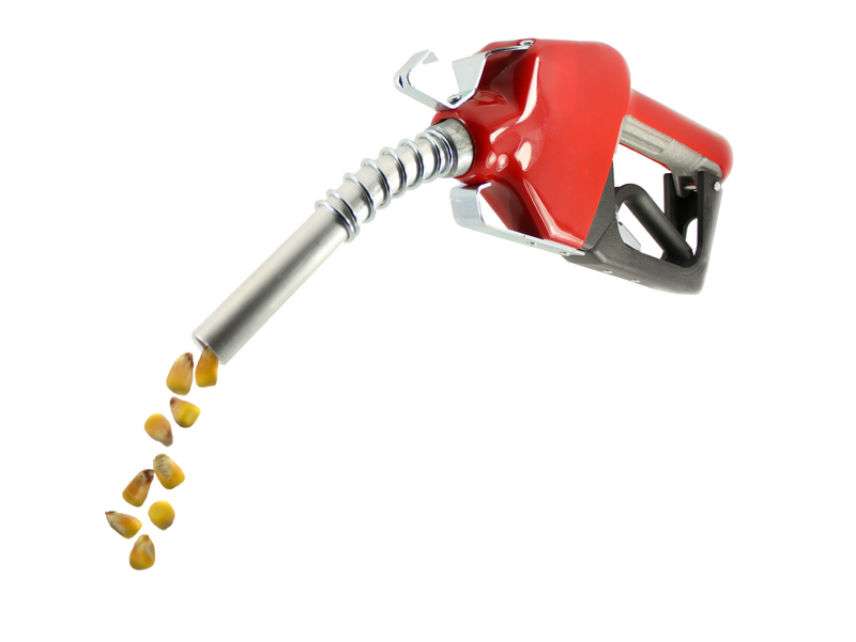Trump's EPA Feeds the Ethanol Swamp Dwellers, Just As He Promised
The biofuels mandate is crony capitalism as usual.

Presidential candidate Donald Trump famously promised to "drain the swamp" during the 2016 campaign. He apparently didn't mean draining the swamp of its denizens whose support he needed to win the election.
Trump repeatedly assured voters in the Midwest farm states of his support for ethanol mandates. As far back as 2015 when asked if he favored the Renewable Fuels Standard (RFS), Trump replied: "Yes, and a very strong yes. There's no reason not to. We need it. … Ethanol is terrific, especially with the new process, and I am totally in favor of ethanol, 100 percent. And I will support it." After becoming president, Trump reiterated his support for the ethanol mandate, declaring in a June, 2017 speech in Iowa: "By the way, we're saving your ethanol industries in the state of Iowa just like I promised I would do in my campaign. Believe me, they are under siege, folks."
So last Thursday, Environmental Protection Agency Administrator Scott Pruitt duly sent a letter to corn-state senators assuring them his agency would support the Renewable Fuel Standard by requiring refiners in 2018 to blend in 19.24 billion gallons of biofuels into the nation's fuel supply. This mandate fits nicely on a glide path to 36 billion gallons of biofuels blended into transport fuel supply by 2022 set out in 2007 by the Energy Independence and Security Act (EISA).
When EISA was adopted, the price of oil was $90 per barrel on its way to peaking at over $130 per barrel by the end of the following year. U.S. petroleum production had fallen to about 5 million barrels per day and the country was importing about 14 million barrels per day.
As the result of the fracking revolution, U.S. oil production was around 9.4 million barrels per day this past year, and imports were about 10 million barrels per day. A barrel of oil sells at around $60.
Despite the sea change in the industry, the ethanol mandate lives on, never mind that it burns up 40 percent the U.S. corn crop and requires the plowing up of 36 million additional acres of land, the size of the entire state of Iowa.
In addition, a 2015 study in the Energy Journal calculated that the renewable fuel standard doesn't even reduce the amount of greenhouse gases emitted by the transportation sector. By one calculation, the complicated way that the RFS mandate is applied drives up refinery costs by as much $15 billion. Of course, drivers must pay more at the pump to cover that expense.
In response to the Trump administration's exercise in biofuels crony capitalism, Bob Dineen, the swamp denizen who heads up the ethanol lobbying group Renewable Fuels Association effused:
"The U.S. ethanol industry is grateful for Administrator Pruitt's epiphany on the road to the RFS. We look forward to working with EPA to preserve and grow the RFS, encourage innovation in the production and marketing of biofuels, and secure common sense reform in the regulations that have kept higher octane ethanol fuels from being sold year round. As for the members of Congress, governors, and others who advocated so strongly for farmers and consumers, we thank you profusely."
When Trump promised to drain the swamp, he declared, "When the powerful can get away with anything, because they have the money and the connections to rig the system, then the laws lose their moral authority." So, too, do politicians who rig the system in favor of special interests like the ethanol lobby.


Show Comments (18)